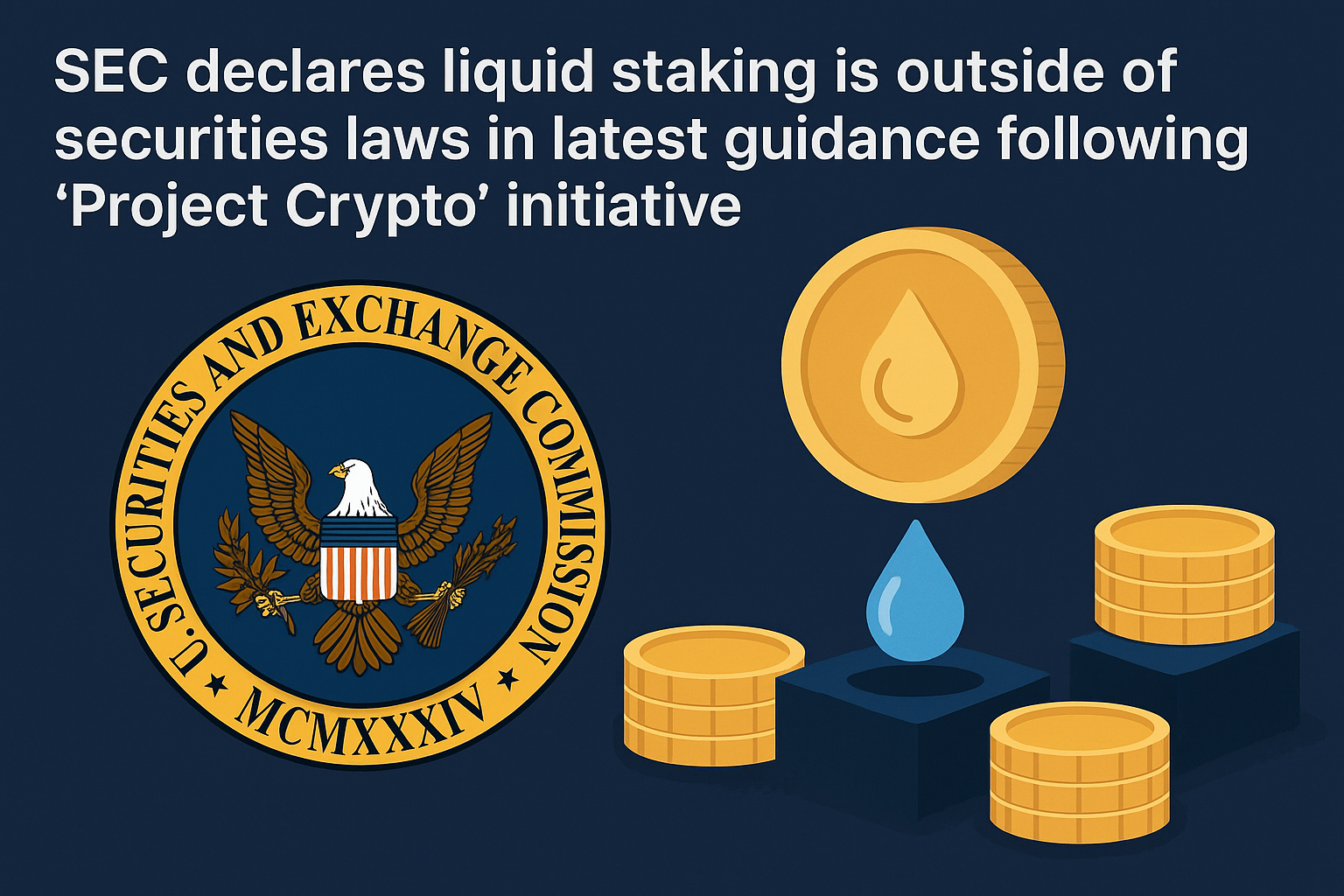Key Takeaways
- The SEC declares liquid staking activities are not securities, clearing regulatory concerns for protocols like Lido and Stakewise.
- The guidance follows Project Crypto, part of the SEC’s push to modernize crypto regulations.
- The ruling could pave the way for Ethereum spot ETF staking approval, benefiting institutional crypto products.
SEC: Liquid Staking Not a Securities Transaction
Moving away from crypto regulation, the U.S. Securities and Exchange Commission (SEC) has come out with a statement that certain liquid staking activities are not covered by securities laws. This confirmation provided only earlier today under the SEC’s “Project Crypto” mission initiative signifies the beginning of a new era in the regulation of digital asset services such as the staking.
As per the new instructions issued on August 5, people involved in the staking who accept “a liquid staking receipt token” — usually it stands for the staked crypto and the income part — are not obliged to register with the agency. The exemption is applicable only if the token does not constitute the “investment contract” category as per the existing securities laws.
Among the examples of protocols that are set to benefit primarily from this exemption there are Lido, Marinade Finance, JitoSOL, and Stakewise. In the SEC’s Statement, it was confirmed that, as far as these tokens do not relate to an investment agreement, they are not considered as securities by the Securities Act or Exchange Act.
Project Crypto and ETF Implications
This change in the SEC’s position towards crypto assets is characterized as a less aggressive regulatory approach and the new Chair Paul Atkins, who has announced that Project Crypto serves as a move towards transforming the old frameworks on digital assets. Atkins made it clear that the aim is to keep innovation alive while at the same time having clear regulations.
Experts believe this new guidance could also unlock approval for staking mechanisms within spot Ethereum ETFs. Nate Geraci, President of NovaDius Wealth, suggested that liquid staking tokens may help resolve liquidity concerns previously raised by the SEC, making ETF proposals more viable.
Legal analysts, including Jason Gottlieb of Morrison Cohen, highlighted that the implications extend beyond staking. The logic may also apply to receipt tokens used in cross-chain bridges or wrapped assets, which could now fall outside of SEC jurisdiction if used correctly.
Summary
The SEC has officially excluded certain liquid staking practices from securities regulations, a move that could fuel innovation and push Ethereum ETF approvals forward. The decision, under the new Project Crypto framework, benefits major staking platforms and signals a more crypto-friendly era for U.S. policy.
Also Read: Base Network Stalls at Block 33792704 for 19 Minutes
551WVDZ1












